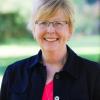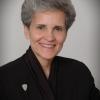Pulling into the post office parking lot as I came off of retreat, I stopped for a moment in the car. I thought to myself, The flags are at half-staff again. And for a moment, I couldn't remember why. A laundry list of places streamed through my mind: Baton Rouge, the Twin Cities, Orlando, Nice, Dallas, Baton Rouge (again), Istanbul . . .
From A Nun's Life podcasts - Can learning about the Catholic faith be a form of prayer? What about church History? In this Random Nun Clip, we talk about learning as an awesome thing that can be prayerful.
Nuns on the Bus Blog - "So we, though many, are one body in Christ and individually parts of one another." As we prayed with this Scripture at the start of the day Wednesday, we could not foresee how immersed we would be in the experience of being one body.
Philip Mathew is a journalist based in Bangalore, southern India. He edits Asia Pacific Ecumenical News and writes for Matters India, a news portal that collaborates with GSR and focuses on religious and social issues. He is a former staff of the Christian Conference of Asia in Hong Kong and a former managing editor of the ecumenical paper People’s Reporter.
While South Sudan regains stability in the wake of recent violence, Catholic sisters serving as part of an interfaith coalition hope that efforts to improve conditions in the nation can be sustained. "[The church] is providing assistance to the displaced, schooling, and health programs through many institutions, many of them run by sisters. Sisters in South Sudan hold institutions and programs that take care directly of people, in education, health, women's empowerment, agriculture, peace building and trauma healing."
The call of God is mysterious. Sometimes the Spirit whispers gently in our hearts. Sometimes God's invitation is extended through people or events in our life. Sometimes it is through the heartfelt search for Pikachu. Pikachu is one of many characters in the latest mobile app sensation, "Pokémon Go." Released July 6, "Pokémon Go" uses augmented-reality technology to engage players with the game, other players, and the physical world around them.
James Creedon is an Irish journalist based in Paris, where he is media editor on France 24's English-language network. He recently completed a documentary film, "Thanks to your Noble Shadow," on the life of his cousin, Sr. Paschal O'Sullivan. Born in 1912, O'Sullivan was the last Irish missionary nun to serve in Japan.
See for Yourself - Local folks I know always look forward to attending a large health fair that spans two days and is held not only at the convention center but also at a downtown park. These fairs bring forth everything one could imagine in the quest for good health.
"'Love one another as I have loved you.' . . . the love Jesus spoke of went far beyond the law and never came attached to any condition."





